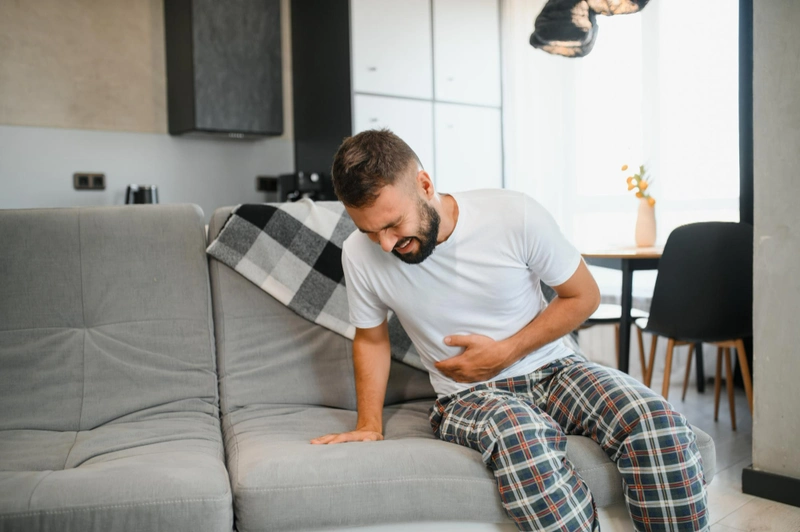- Published on: Dec 08, 2021
- 3 minute read
- By: Second Medic Expert
How To Treat Low Blood Sugar?
How to treat low blood sugar?
One should have a small snack every few hours, such as a handful of nuts or fruit. Some other tips are not to eat a high carb dinner and if you must, limit the carbs to 30 grams or so. Finally, it's also important to first take care of any dehydration issue through water consumption prior to consuming juice as this will increase your chances of getting too much sugar fast from all those sugars from the pasteurized juices.
When glucose levels fall low enough that brain function becomes impaired, one exhibits signs and symptoms such as tremors or shaking, slurred speech, unsteady gait (walking), confusion, and agitation; these can be quickly reversed by eating some foods containing sugar like raisins.
Eating more protein will give you a better chance of stabilizing your blood sugar by spiking your insulin levels. Protein has the highest "incretin effect"--it spikes both insulin levels and glucagon, signaling to produce energy stores in the liver. Insulin is the signal for your body to use energy from food, while glucagon signals your body to make energy for itself. Protein also slows down digestion, making glucose available longer after eating it which leads to lower blood sugar spikes following meals.
Include low-GI foods in your diets, such as nuts, fruits, vegetables, and whole grains. It's also important to get enough protein at each meal - this helps balance hormonal levels of insulin which prevents both high and low blood sugar levels.
Nuts of all types are a great energy food because they're a good source of natural fat and protein with a lower GI than any other snack or dessert. Add some almonds or walnuts into that morning cereal or yogurt for a boost. And try adding an inch-long segmented cucumber to smoothies for flavor and amazing fiber content!
Calorie-dense food is the best choice, so fill up on anything you can find that's high in fat and low in protein. Low-carb food types like cookies, candy bars, ice cream, or peanut butter are your best bets for this. Eat more than you want - just don't overdo it by eating too much sugar if your blood sugar level has dropped too quickly. Smaller meals at regular intervals are also a good idea to avoid any problems with hypoglycemia (low blood sugar).
Glucose, in the form of candy, dark chocolate, or honey. If you break your fast with a smoothie that contains protein and carbs preferably from dairy, then eating these foods next will also help to stabilize your sugars. Alternatively, one could drink fruit juice or non-diet cola (sugar-laden) provided it does not cause distressing hypoglycemia symptoms. You can also eat fresh fruit (bananas and apples). The most effective treatment is the ingestion of glucose however food sources such as potatoes and bananas can also help regulate blood sugar levels albeit to a lesser degree than glucose.
The most straightforward answer is to consume a high glycemic index, low-fat snack - for example, vegetables or some fruit. Beyond that, glucose tablets are an option. These are simply dissolved under the tongue to quickly bring blood sugar levels back up.
It is important to eat when one feels their glucose levels are dropping. Low blood sugar levels often coincide with low energy levels, which means the sufferer may feel lethargic and tired. Eating can help combat these feelings by supplying glucose to the body to restore energy levels.
The recommendation for people at risk for diabetes type II is that they keep food that follows a 1–2-hour rule on hand at all times. This corresponds to what you would eat if you ate 6 times per day between breakfast, lunch, dinner, 2 snacks before bedtime plus an "emergency" snack after waking up in the morning or during afternoon/evening work breaks or right before bedtime.
Do not panic. This may happen if you eat too much sugar, drink iced beverages, or do not eat enough fat. The most important thing is to keep your sugar level up with something like a peanut butter milkshake or brownie. If these are unavailable, use whatever you have on hand (chocolate chips work great!) and make sure to smear it across the tongue with some fat like butter. Always remember that simple sugars are best-- swish them around in the mouth for a while until they dissolve- chewing them can be frustratingly slow and annoying!
You will feel better soon after eating, but if your blood sugar falls again stand relaxed with relaxed muscles- take deep breaths- stay calm- drink fluids. Low blood sugar is an indication that insulin levels are too high, probably because you haven't eaten in a while. Whole foods are better than processed foods when you go periods without eating, but if you have time to grab something, aim for protein. Eggs are great - they're prepared so quickly, and they'll keep the hunger at bay with their balanced nutrition of carbs, fats and proteins. If eggs aren't your thing (or if it's not breakfast time), check out some veggies like celery or bell peppers that will give you quick carbohydrates to stop the cravings in their tracks.
Our Services
Request A Callback
Recent Posts
High Blood Pressure: Everything You Need to Know
Apr 24,2025










